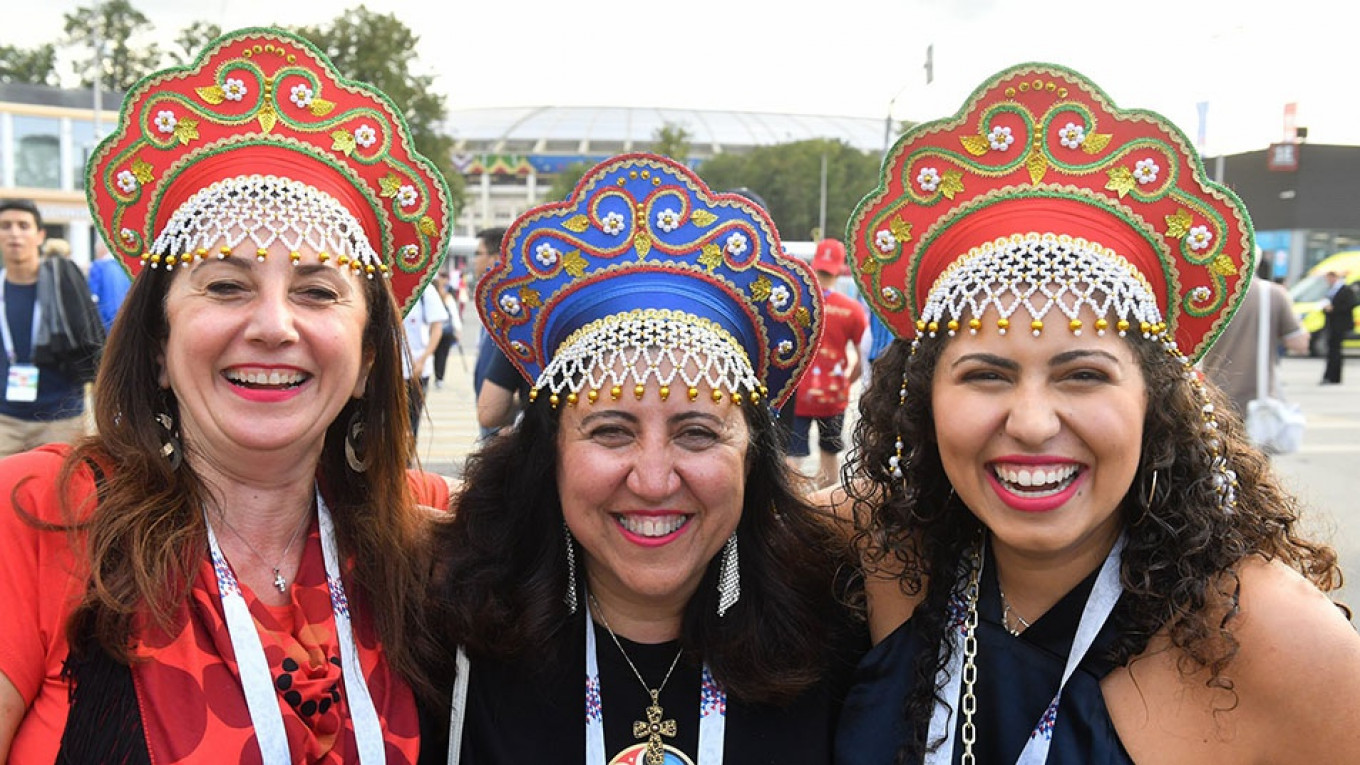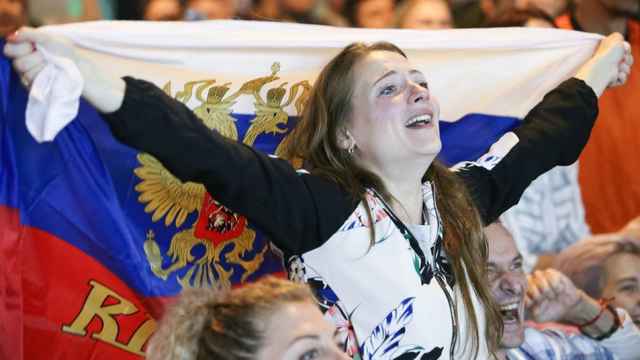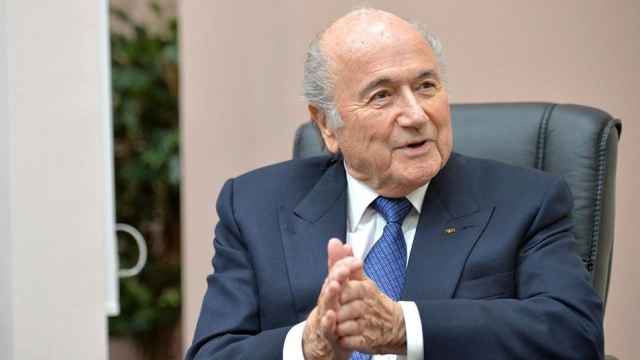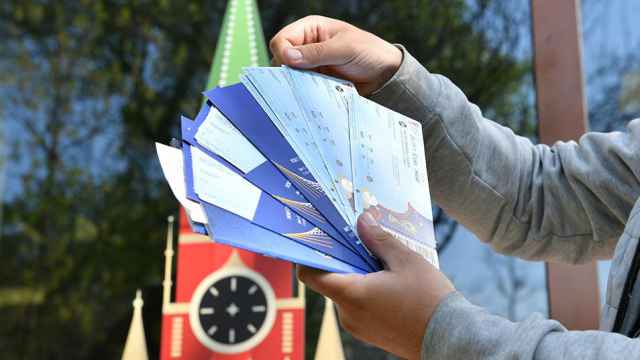At a shop outside the Teatralnaya metro, sales manager Dilovar is having to turn customers away. “We’ve completely sold out of kokoshniki,” he said while haggling with a Croatian fan over a shot glass featuring President Vladimir Putin’s face. “Even the men are wearing them.”
The headdresses, traditionally worn by women in pre-revolutionary Russia to signal their married status, became a hit after cameras zoomed in on a Russian family wearing them while they munched on hot dogs during Russia’s match against Spain.
After appearances on national television, the family quickly became celebrities and were dubbed the home side’s “lucky charms.” (Notably, one of the men is employed by a public relations company which has worked on publicity campaigns for Putin and Moscow Mayor Sergei Sobyanin.)
From Zabivaka the wolf to replica trophies, there has been no shortage of World Cup icons. But with FIFA owning the copyright to official souvenirs, the kokoshnik craze has become a way in for local businesses.
Invitro, a clinical testing company, offered a 50-percent discount on blood and urine samples to anyone who showed up to its Moscow branches wearing a kokoshnik on Wednesday. Speaking to The Moscow Times, a company spokesperson said the stunt had been a huge success.
“People forget about check-ups, and this was a perfect opportunity to use a popular trend to advertise our services,” Dmitry Khrapunov said in a phone conversation.
Kokoshnik sales were already on the rise in the first week of the tournament, the RBC outlet reported, but spiked fivefold in the first week of July, ahead of Russia’s match against Croatia. The headdresses have steadily become more expensive, too, with the cheapest increasing from 330 rubles ($5) to at least 1,500 rubles ($24). (Red kokoshniki with lace ribbons are most in demand, the report said.)
“Before it was matryoshki, now it’s kokoshniki,” said manager Arkady, 29, referring to the traditional Russian nesting dolls. “Kokoshniki have become a meme and a national treasure.”
Above all, the kokoshnik’s comeback is a joke for Russians. “The English and French and all those don’t really get it,” Arkady said.
“It’s just Russians who are buying them,” Andrei, 33, agrees. “Europeans are mostly buying matryoshki and [traditional square-shaped hats] ushanki. They also like communist symbols, which are particularly popular among Latin Americans.”
As teams have been eliminated and fans have returned home, however, the souvenir rush has noticeably weakened, staff said.
At her stall, Svetlana, 47, seemed unfazed — if a little left out — by the kokoshnik craze. She had traveled from Nolinsk, a city more than 1000 kilometers away, to sell matryoshki, and nothing else. “We’ve seen them do well in other stalls,” she added, glancing sideways at her neighbors.
While the kokoshnik is all the rage now, however, the matryoshka is proven gold year-round. “This has been one of our best ever seasons,” she said. “It’s been a miracle.”
Includes reporting by Anton Muratov.
A Message from The Moscow Times:
Dear readers,
We are facing unprecedented challenges. Russia's Prosecutor General's Office has designated The Moscow Times as an "undesirable" organization, criminalizing our work and putting our staff at risk of prosecution. This follows our earlier unjust labeling as a "foreign agent."
These actions are direct attempts to silence independent journalism in Russia. The authorities claim our work "discredits the decisions of the Russian leadership." We see things differently: we strive to provide accurate, unbiased reporting on Russia.
We, the journalists of The Moscow Times, refuse to be silenced. But to continue our work, we need your help.
Your support, no matter how small, makes a world of difference. If you can, please support us monthly starting from just $2. It's quick to set up, and every contribution makes a significant impact.
By supporting The Moscow Times, you're defending open, independent journalism in the face of repression. Thank you for standing with us.
Remind me later.






